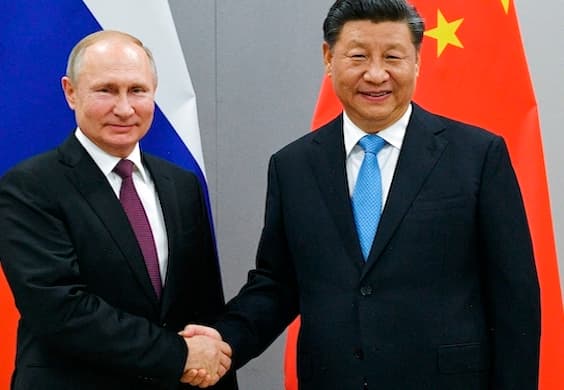The Chinese-Russian Wager on the War
When Beijing preaches respect for sovereignty, what goes through the minds of the people of Taiwan?

A Chinese power play disguised as a peace plan for the war in Ukraine reminds us of one piece of advice we heard long ago: Beware of Communists bearing gifts. Chairman Xi Jinping’s relations with his co-pilot in the Kremlin are well reflected in the 12-point plan published by the Chinese foreign ministry on the war’s first anniversary. They’re working on what could be described as the cripple-America air force.
Please check your email.
A verification code has been sent to
Didn't get a code? Click to resend.
To continue reading, please select:
Enter your email to read for FREE
Get 1 FREE article
Join the Sun for a PENNY A DAY
$0.01/day for 60 days
Cancel anytime
100% ad free experience
Unlimited article and commenting access
Full annual dues ($120) billed after 60 days

